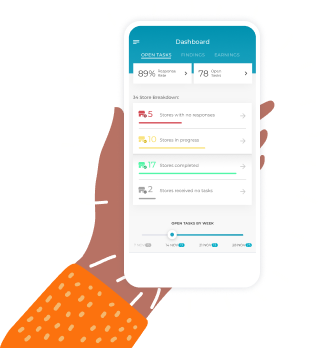Work—what it means, how it happens, and where it takes place—has completely changed due to Covid-19. I don’t need to tell you that as you read this article at home on your iPad, in the quiet moments between Zoom meetings. If managing a team was hard in the past, it’s arguably ten times more difficult today, and it struck me that this new normal is likely just as difficult and weird in the same ways for everyone, whether a software marketer, a retail operations lead, or a CIO.
Now that we have all had a few months to acclimate to the change, I thought it might be worth writing down a few things I’ve personally learned while managing a team through all of this. So in no particular order, here are ten things I learned early, too late, and at just the right time in order to hold it all together:
1. Communication Over Everything
Don’t leave your team to wonder. In times of crisis, your employee’s minds will venture toward the negative, the cynical, or the worst-case scenario. To the highest degree that you can, communicate with them regarding policy changes, company updates, management or staff changes, anything important, anything not important, as often as possible. Even if you haven’t come to a decision on a policy change, it can be helpful to communicate that you are considering the changes and when your team can expect an update. When you are not in the office, be present and available as much as possible.
2. Start with Gratitude
Begin every team meeting with gratitude. What are you thankful for today, and what are your team members thankful for? Doing this helps set the tone of the meeting, reinforces a positive mindset, and often adds some humor and candor to what may normally be a routine stand-up. There are many difficult things that we all have to deal with during this time—it’s important to reflect on the positive things, too. And a little levity never hurt anyone.
3. You Can’t Force Motivation
Some of your team members are going to have a harder time than others, and that’s okay. Everyone’s situation is different. If possible, lean into those that are more productive at this time, and back off of those that aren’t. Communicate with your employees to try and better understand their feelings, assigning work that matches their current capacity. There are always times when work has to be completed and be completed quickly, but to the best you can, try to modulate the workload. There are many ways to help re-motivate employees, like giving positive feedback, empowering them to do more interesting work, offering days off. If you don’t know how to help someone, it’s always okay to ask, too.
4. Team Bonds are Strong
It might feel like you haven’t seen your team in a long time, but those bonds are strong. To the best you can, keep up with old habits and rituals. Did you do a pre-work coffee run with your team before Covid? Send a Zoom link before work where everyone can chat over a cup. Keep up the same jokes, nicknames, and dynamics in meetings. In other words, the more ‘normal’ your team meetings feel, the more comfortable people will feel. Trust that those team bonds are still there, and reinforce them where you can.
5. Keep Up Happy Hours, Birthday Celebrations, and Events
Keep doing all the things you did to build team bonds and morale. Happy hours, trivia nights, birthday parties, even while you’re remote. To the above point, it helps to maintain those strong bonds, but it also shows people that you’re still thinking about them and valuing them during the pandemic. As I will say many times in this piece, it’s important to maintain a balance of normalcy while acknowledging what is happening around us now.
6. People Need Space
Sometimes people just need space. Including you. Is a team member not turning on their camera? Don’t worry about it—Zoom meetings can be exhausting, especially when you’re having four or five a day. Reinforce your PTO policy, or give additional days off if you can. In all likelihood, your employees are working harder and longer hours than they did before this happened. Try to acknowledge and show appreciation for that where you can. Remember that while work is important, we are in the middle of an unprecedented global pandemic, and people are going to be a little more preoccupied that they used to be. That’s a bit of a humorous understatement, but please also don’t forget that this applies to you as well. Cut yourself a break a give yourself a day off, too (even if it’s just to watch a whole season of The Sopranos).
7. Delegate
You can’t solve every challenge yourself, and if you try to take it all on, you’re going to let your team down in the long run. Motivate your team by empowering them to do more interesting work, or letting them take on some of your responsibilities while you focus on pivoting the overall strategy. New challenges can help employees get their mind off of things as they learn different skills and flex different muscles to get work done. Be wary however of over-delegation, and be in touch with them consistently to monitor their workload.
8. Create a Workspace for Yourself
Pick a space that you want to work from, and do what you can to make it sacred. Don’t pick your favorite place to hang out (it’s going to remind you of work during off-hours) and if possible, try not to work in your bedroom (where you risk getting a little too comfortable). Until we return to the office, do your best to create a designated place to work so you can try to create a space between your work life and your home life. This will help you prevent you from burning out or becoming demotivated. If you’re down for the count, your team is going to have a much harder time.
9. Skip the Booze, Don’t Skip the Healthy Foods
This one is a little tough to talk about directly, but alcohol sales have surged during the pandemic, and it’s easy to see why. With no bars open and high stress, people look for ways to take the edge off. To be blunt: be very careful here. Alcohol is a depressant, and with the current state of the world, it’s easy to get into a cycle of pain that will find you more often than not reaching for the bottle. If you’re depressed and hungover while working from home, you’re not going to be able to bring the enthusiasm you need to lead your team. Drinking responsibility is okay—you’re an adult, and you know yourself. But please, take care of yourself, and be careful. Eat some healthy foods, go for a run, get your endorphins up when you can. This is a hard thing to live through even without adding in toxins.
10. Be Kind to Yourself
Unless you’ve been working since the 1918 Spanish Flu, this is the first time that any of us have gone through this in the workplace. You’re simply not going to get it right 100% of the time, or even close to that. And that’s okay. The important thing is to keep your focus on the team, on the morale, and to forgive yourself when you make mistakes. Generally, with managers of people, being hard on yourself goes with the territory, and I don’t expect you to change that. But I do ask you to listen to yourself and your needs just as much. Give yourself that day off, a pat on the back, or a moment to breathe.
We may not know what’s on the other side of this, but we will all arrive there eventually. And if you arrive there knowing you did your best to protect and support those around you, you will arrive in a strong position to create opportunity for yourself, your team, and your company.



